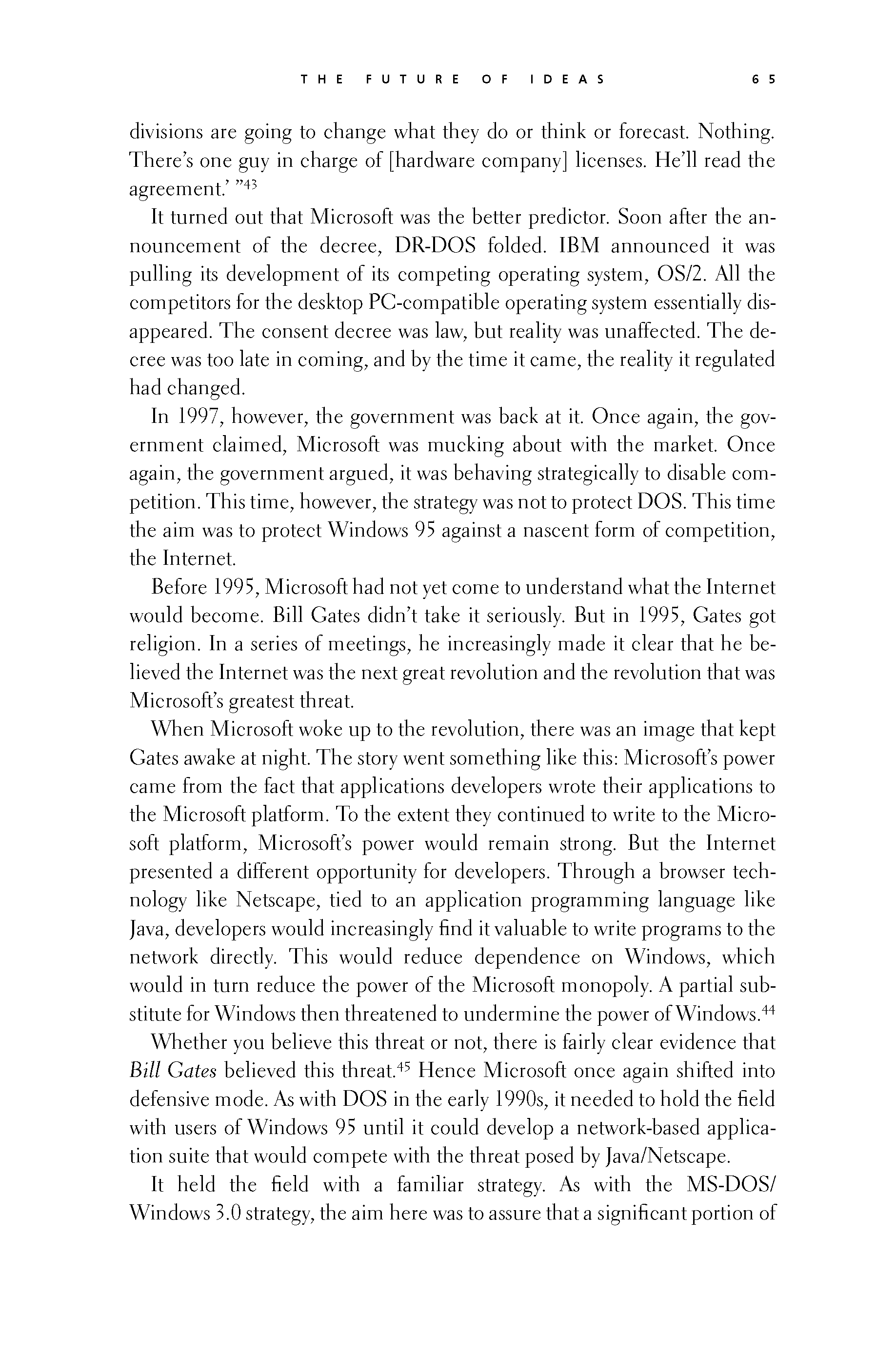 p064 _
-chap- _
toc-1 _
p065w _
toc-2 _
+chap+ _
p066
p064 _
-chap- _
toc-1 _
p065w _
toc-2 _
+chap+ _
p066
divisions are going to change what they do or think or forecast. Nothing.
There's one guy in charge of [hardware company] licenses. He'll read the
agreement.'"[4-43]
It turned out that Microsoft was the better predictor. Soon after the an-
nouncement of the decree, DR-DOS folded. IBM announced it was
pulling its development of its competing operating system, OS/2. All the
competitors for the desktop PC-compatible operating system essentially dis-
appeared. The consent decree was law, but reality was unaffected. The de-
cree was too late in coming, and by the time it came, the reality it regulated
had changed.
In 1997, however, the government was back at it. Once again, the gov-
ernment claimed, Microsoft was mucking about with the market. Once
again, the government argued, it was behaving strategically to disable com-
petition. This time, however, the strategy was not to protect DOS. This time
the aim was to protect Windows 95 against a nascent form of competition,
the Internet.
Before 1995, Microsoft had not yet come to understand what the Internet
would become. Bill Gates didn't take it seriously. But in 1995, Gates got
religion. In a series of meetings, he increasingly made it clear that he be-
lieved the Internet was the next great revolution and the revolution that was
Microsoft's greatest threat.
When Microsoft woke up to the revolution, there was an image that kept
Gates awake at night. The story went something like this: Microsoft's power
came from the fact that applications developers wrote their applications to
the Microsoft platform. To the extent they continued to write to the Micro-
soft platform, Microsoft's power would remain strong. But the Internet
presented a different opportunity for developers. Through a browser tech-
nology like Netscape, tied to an application programming language like
Java, developers would increasingly find it valuable to write programs to the
network directly. This would reduce dependence on Windows, which
would in turn reduce the power of the Microsoft monopoly. A partial sub-
stitute for Windows then threatened to undermine the power of Windows.[4-44]
Whether you believe this threat or not, there is fairly clear evidence that
_Bill_Gates_ believed this threat.[4-45] Hence Microsoft once again shifted into
defensive mode. As with DOS in the early 1990s, it needed to hold the field
with users of Windows 95 until it could develop a network-based applica-
tion suite that would compete with the threat posed by Java/Netscape.
It held the field with a familiar strategy. As with the MS-DOS/
Windows 3.0 strategy, the aim here was to assure that a significant portion of
[[65]]
p064 _
-chap- _
toc-1 _
p065w _
toc-2 _
+chap+ _
p066